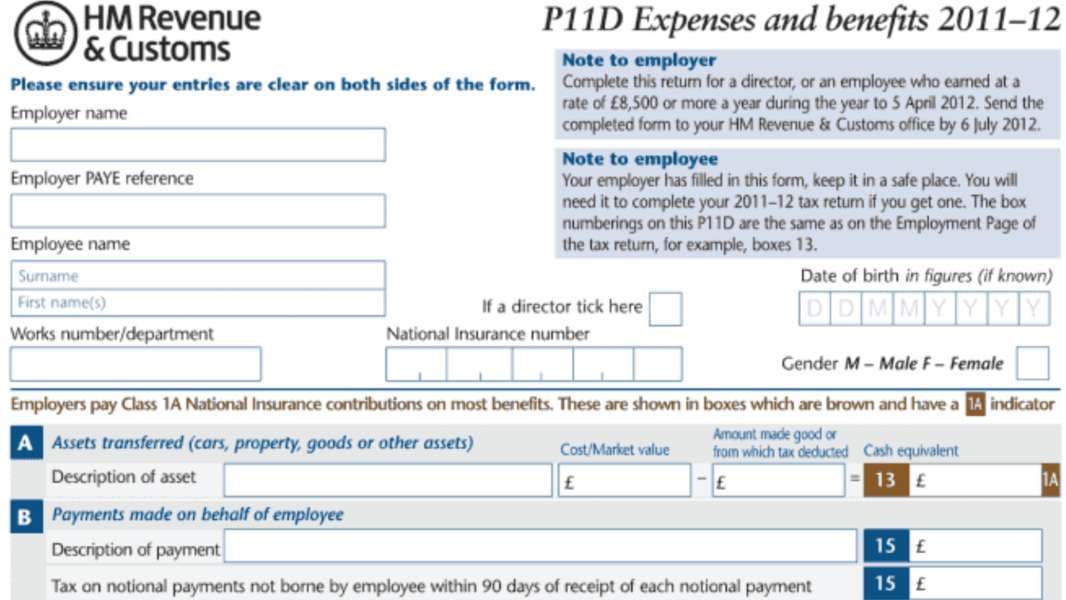A P11D is a form used in the UK to report benefits in kind (BiKs) provided to employees and directors that are not processed through payroll. These are benefits or expenses that aren’t part of salary but have a taxable value—like company cars, private medical insurance, or interest-free loans.
What needs to be reported on a P11D?
You must report any benefits or expenses not payrolled. Common examples include:
- Company cars and fuel
- Private medical insurance
- Interest-free or low-interest loans over £10,000
- Relocation expenses above HMRC thresholds
- Living accommodation
- Gym memberships, etc.
You’ll also need to submit a P11D(b) to report the total Class 1A National Insurance contributions due on these benefits.
When do P11Ds need to be submitted?
- Deadline to submit forms: 6 July following the end of the tax year (which ends on 5 April).
- Class 1A NIC payment due: 22 July (or 19 July if paying by cheque).
- Give employees their copy: Also by 6 July.
Main differences between doing a P11D and payrolling benefits:
| Feature | P11D | Payrolling Benefits |
|---|---|---|
| How tax is collected | Employee pays tax via Self Assessment or PAYE code adjustment | Tax is collected in real time through payroll |
| Form filing | P11D and P11D(b) required | No P11D needed for payrolled benefits (except for some like accommodation and loans) |
| Class 1A NIC | Declared on P11D(b) | Still declared via P11D(b) even if benefits are payrolled |
| Employee notice | P11D form must be given | Inform employee at the start of the year |
| Admin burden | Annual task | Slightly more regular work in payroll process |
Alternatives to P11D
The main alternative is payrolling benefits, which HMRC encourages as it:
- Simplifies administration.
- Removes the need to file P11Ds (except for some benefit types).
- Lets employees see the tax impact in real time.
To payroll benefits, you must register with HMRC before the start of the tax year using the Payrolling Benefits and Expenses service.
Some employers also use dispensations (historically) or trivial benefits exemptions to reduce what needs to be reported, though these don’t apply to all benefit types.

Dipak is a qualified chartered accountant who founded DD Chartered Accountant in 2012. Having trained as an auditor, later moving to Ernst & Young, he realised that his true professional passion lay in working directly with people in small and medium-sized businesses, helping them reach their true potential.

